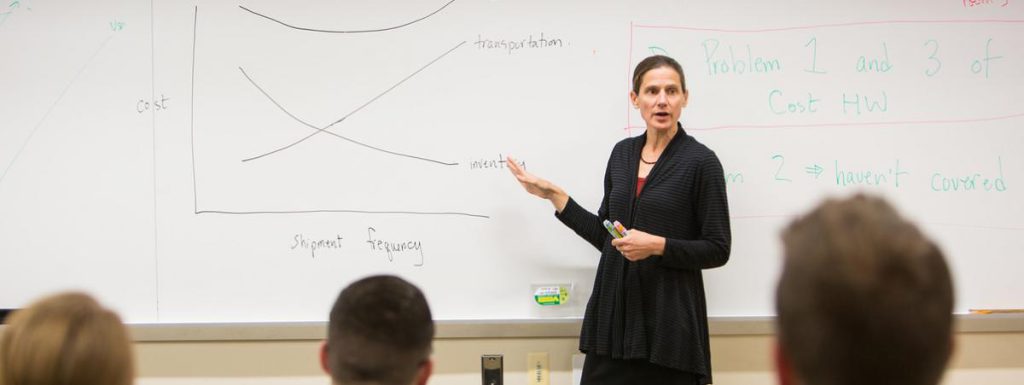
Many online retailers are extending holiday free shipping, but how free is it? It still costs retailers to deliver the goods, there’s greater traffic congestion, thefts and a toll on infrastructure.
NOEL KING, HOST: The only two words that online shoppers like more than half off are free shipping. Research actually shows that free shipping is a big driver of Internet buying. But very few things in life are really free. Someone always pays, including people stuck in delivery truck traffic jams. NPR’s David Schaper reports from Chicago.
DAVID SCHAPER, BYLINE: I’m out on Chicago’s Michigan Avenue, the Magnificent Mile, a place well-known for its fine shopping. And I’m here to tell you that brick and mortar retail isn’t completely dead yet. Many of the stores here are bustling with shoppers trying to pick up some last-minute holiday gifts.
JOSHUA GILES: Last-minute gifts for Mom, Dad, brother, sister.
SCHAPER: Thirty-year-old Joshua Giles (ph) is carrying several stuffed shopping bags, but his friend, Shawn Teasley (ph), is empty-handed.
SHAWN TEASLEY: Because I went on Amazon last night and bought everything on Prime. So it is currently on the way. So I’m just here today for moral support.
SCHAPER: Teasley does all of his holiday shopping online, and one big reason is the free shipping.
TEASLEY: I don’t buy anything, even outside of the holidays, if it’s not eligible for Prime. Like, I would only buy it if I can get it in two days.
SCHAPER: And he’s not alone. Twenty-one-year-old Mariella Aviles (ph) of Chicago says not having to pay for delivery is often what makes her click Buy.
MARIELLA AVILES: Usually, if I can get free shipping, I’ll avoid having to pay for it just as long as, you know, I can pay less.
SCHAPER: Free delivery is such a draw for online shoppers that some e-retailers have extended deadlines to as late as today for orders to qualify for free shipping and still get it delivered by Christmas.
CHARLIE O’SHEA: It’s an arms race.
SCHAPER: Charlie O’Shea is lead retail analyst for Moody’s and says e-retailers are trying to outdo one another with free shipping offers.
O’SHEA: That’s just a promotion. That’s just a retailer saying, OK, we’ll eat the cost.
SCHAPER: And O’Shea explains why.
O’SHEA: What free shipping does is, it can cement the relationship with the customer. It can help you make a sale. And hopefully, there’s something additive at some point in that relationship that allows you to recoup the cost of that free shipping.
SCHAPER: O’Shea says some big retailers, like Walmart, Target and Best Buy, are well-positioned to absorb those free shipping costs because they already have a complete supply chain in place to feed their many brick and mortar stores, which can also serve as pickup locations or even last-mile delivery hubs. He estimates that shipping will cost Amazon close to $15 billion this year with only some of that offset by Prime memberships, but the online retail giant seems willing to take the hit in order to expand its market share. But other retailers with slumping store sales can’t afford to lose more money on free shipping, especially, O’Shea says, as that arms race escalates to two-day, next-day and even same-day delivery.
O’SHEA: And with any arms race, at some point you’re overshooting.
SCHAPER: As for those of us online shoppers who think we’re not paying for delivery, well, think again.
ANNE GOODCHILD: There’s no such thing as free shipping. There’s also no free lunch.
O’SHEA: That’s Anne Goodchild of the University of Washington Supply Chain Transportation and Logistics Center. She says even though we might be staying home and shopping online instead of driving to the mall, that one trip to the mall for six or eight things might now be replaced by six or eight different trucks delivering to our home.
GOODCHILD: My informed opinion, based on having conducted research in this area, is that we’re increasing traffic.
SCHAPER: In addition to worsening congestion, Goodchild says our radical change in shopping habits is taking a toll on roadways and bridges not really designed for the e-commerce boom.
GOODCHILD: It’s a struggle, and we’re behind in terms of having the infrastructure catch up to how it’s being used so differently.
SCHAPER: And that’s just for having all of our goods shipped to us. Already, the holiday delivery supply chain is shifting gears into reverse for the rush of returns of all those things we purchased online that either don’t fit or we don’t want.